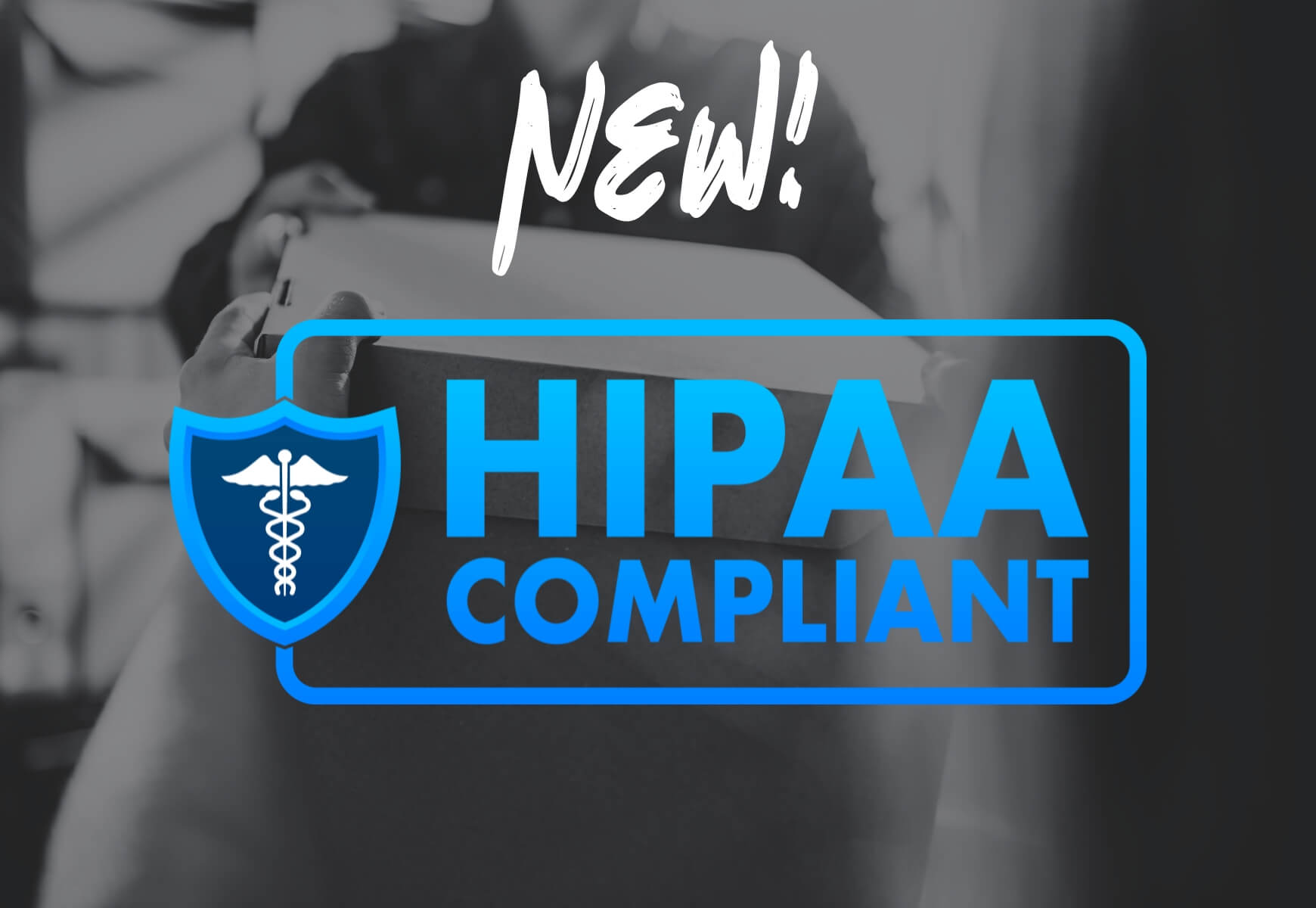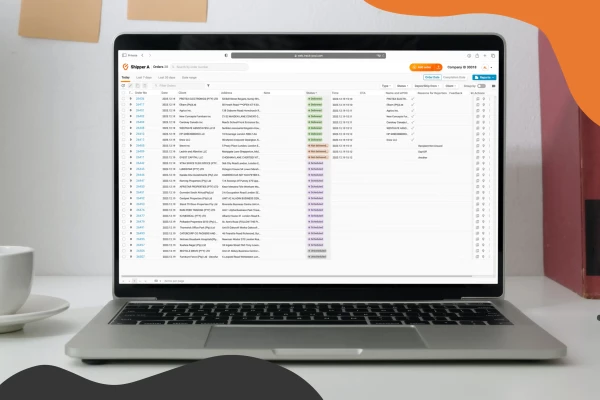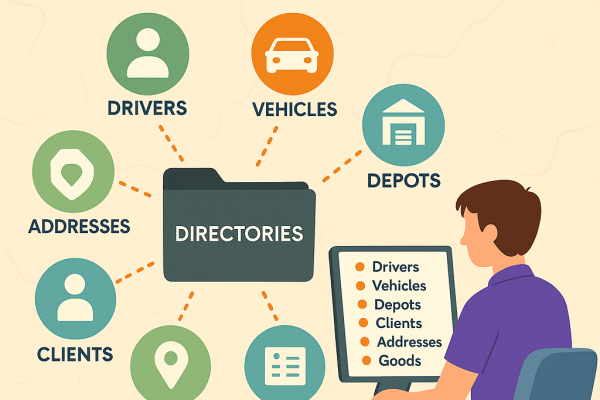HIPAA Compliance for Last-Mile Delivery Software

by
Ekaterina Tumashik
January 02, 2025
Technology is transforming healthcare, making HIPAA compliance essential for industry standards and protecting patient data. Medical deliveries through Track-POD are now HIPAA-compliant, confirming top-tier security and confidentiality. Certified delivery software ensures that sensitive patient information is protected and meets all necessary regulations.
Why Delivery Software Must Comply with HIPAA
For delivery providers, HIPAA compliance is critical to maintaining confidence, avoiding penalties, and securely handling medical shipments. Non-compliance with HIPAA can result in severe fines, loss of trust, and patient safety issues. That is why Track-POD last-mile software met HIPAA regulations, ensuring secure and responsible handling of medical shipments.
What is HIPAA?
The United States established the Health Insurance Portability and Accountability Act (HIPAA) in 1996 to protect sensitive patient data. Then-President Bill Clinton signed it into law, setting strict standards for privacy and security. Before HIPAA, there were no uniform rules for safeguarding medical information, leaving patients in the US vulnerable to breaches and misuse.
As healthcare began shifting to digital platforms, it became critical to establish a framework ensuring the confidentiality, integrity, and availability of protected health information (PHI). Over the years, HIPAA's significance has grown, especially with the rise of health data violations and cyber threats. The 2013 omnibus rule extended HIPAA’s coverage to business associates, including vendors and service providers in the logistics sector. This expansion ensures a comprehensive approach to healthcare data security, making HIPAA essential for modern delivery systems.
HIPAA-Compliant Features in Track-POD
Track-POD has chosen to comply with HIPAA requirements to address the specific needs of healthcare customers. Medical providers and logistics partners require a reliable solution for securely handling sensitive patient data while meeting strict legal standards. In response, Track-POD has implemented advanced measures to ensure safety.
The advantages that identify Track-POD as a trusted partner for secure and compliant medical deliveries:
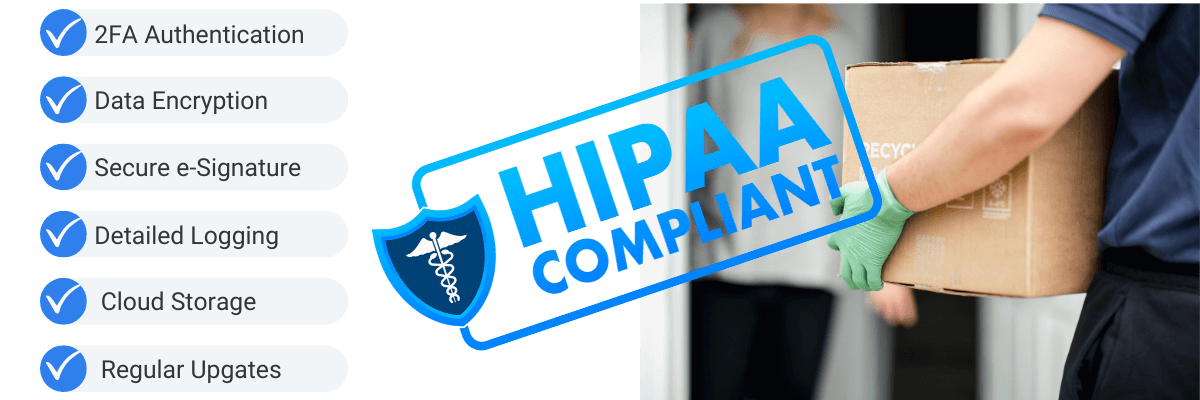
Secure Data Transmission
Embedded Live Chat allows confidential communication between couriers and dispatcher communications to protect ePHI. Additionally, Track-POD holds SOC 2 TYPE II certification, which is highly valuable for organizations that handle sensitive healthcare data.
Access Control
User authentication and role-based access control provide that only authorized personnel can access sensitive data. Track-POD implements two-factor authentication (2FA) to provide an additional layer of security.
Audit Trails
Detailed logs record all actions taken within the system, promoting transparency and accountability.
Digital Proof of Delivery (ePOD)
The system collects electronic signatures while ensuring the confidentiality of patient information.
Cloud Storage
A virtual repository offers data synchronization, remote file management, and redundancy to guarantee that sensitive data remains protected, highly available, and compliant with HIPAA standards.
Regular Improvements
Track-POD delivers weekly updates, introducing new features and enhancements. Healthcare organizations can rely on these releases to ensure that security patches, encryption protocols, and compliance standards are consistently maintained, minimizing the risk of data loss.
What Delivery Couriers Need to Know About Medical Shipments
Medical couriers play a vital role in transporting sensitive healthcare goods. To fulfill these responsibilities, delivery couriers must keep the knowledge and tools necessary to handle medical shipments securely and efficiently.
First, couriers need to understand HIPAA requirements. They are responsible for protecting Protected Health Information (PHI) during transportation, and any breach of this responsibility can result in serious legal and financial consequences.
Maintaining the chain of custody is another critical responsibility for shippers. Using the Track-POD management system gives medical couriers complete visibility and accountability for each order, from pickup to delivery.
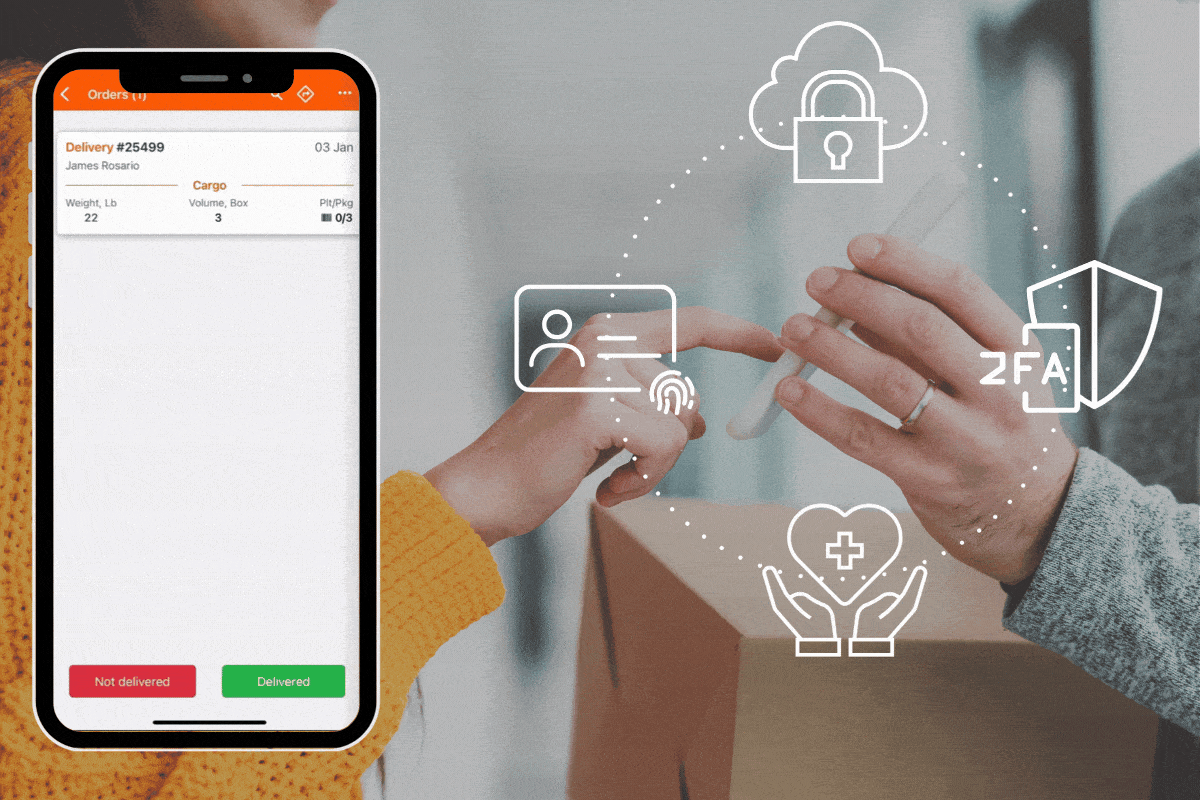
Security is of the utmost importance. Packages containing PHI or other critical medical supplies must be sealed, tamper-proof, and handled carefully to prevent unauthorized access. Couriers must report any incidents immediately to ensure compliance and maintain trust.
Finally, delivery personnel must receive regular training. They should frequently attend educational sessions on HIPAA compliance, medical shipment handling, and the latest medical industry standards. Continuous learning ensures couriers are always equipped to face the challenges of medical logistics.
The Consequences of Failing HIPAA Compliance
Violating HIPAA can lead to significant penalties. Civil fines range from $100 to $50,000 per violation, with a maximum annual penalty of $1.5 million. In some cases, criminal penalties may also apply, including fines of up to $250,000 and imprisonment for up to 10 years. However, it's important to note that not all violations result in penalties.
In addition to fines and imprisonment, non-compliance with HIPAA can have serious consequences such as:
- Loss of reputation and trust among patients and clients
- Missed business opportunities and contracts
- Lawsuits and settlements from affected individuals
- Increased regulatory oversight and audits
- Costs associated with corrective actions and remediation
Covered entities and business associates must fully understand their HIPAA obligations. Implementing the right policies and procedures ensures compliance and avoids these severe consequences.
Choose certified software that prioritizes compliance, efficiency, and quality of caregiving your patients the confidence they deserve.
About The Author
Ekaterina Tumashik
Marketing Manager at Track-POD. I am passionate about creating valuable and engaging content for readers.

